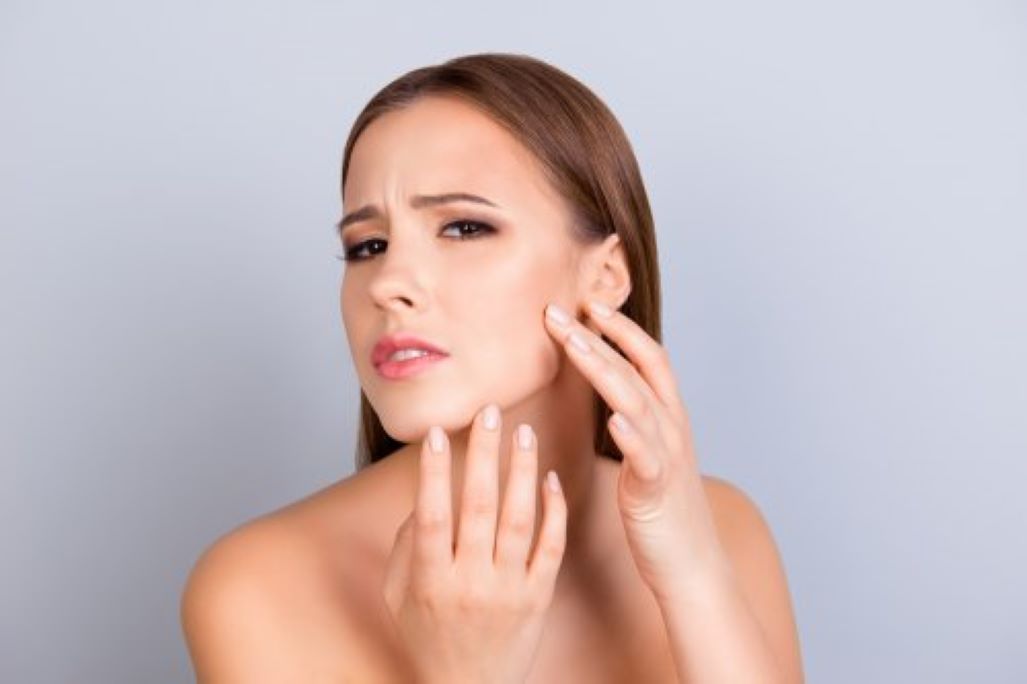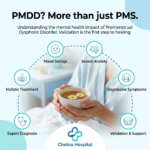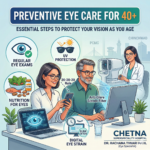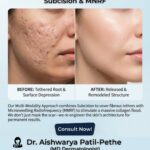In the world of beauty and skincare, trends emerge constantly, fueled by social media influencers, celebrities, and the latest viral skincare hacks. While many of these trends can be beneficial when done correctly, others may cause long-term damage to your skin if not approached with caution. From aggressive exfoliation to overusing certain products, here’s a look at some popular skincare trends that can harm your skin and why you should be careful when jumping on the bandwagon.
1. Over-Exfoliation: The Dangers of Scrubbing Too Much
Exfoliation is essential for maintaining smooth, glowing skin by removing dead skin cells and promoting cell turnover. However, exfoliating too often or using harsh scrubs can strip your skin of its natural oils, leading to irritation, redness, and even an increase in oil production, which could worsen acne.
The trend of exfoliating daily or using gritty physical exfoliants (scrubs) has gained popularity, especially with the rise of products containing abrasive ingredients like walnut shells, sugar, or coffee grounds. While these may give you immediate smoothness, they can also cause micro-tears in your skin, resulting in long-term damage. Over-exfoliating can also leave your skin vulnerable to sun damage, as your skin’s protective barrier becomes compromised.
The Solution:
Instead of overdoing exfoliation, limit it to 2-3 times a week with gentle exfoliators. Opt for chemical exfoliants like AHAs (alpha-hydroxy acids) or BHAs (beta-hydroxy acids) that are less abrasive and provide better, more even results.
2. The “Glass Skin” Obsession: Is It Worth It?
The “glass skin” trend, popularized by Korean beauty, emphasizes ultra-hydrated, dewy skin that looks smooth, plump, and poreless. While achieving this luminous look may seem desirable, it often leads people to use multiple layers of products such as toners, serums, essences, and oils. While hydration is essential for maintaining skin health, over-layering products can overwhelm the skin, clog pores, and cause breakouts.
The trend also encourages the use of heavy moisturizers and oils, which may not be suitable for everyone. If you have oily or acne-prone skin, these layers could exacerbate existing conditions, leading to clogged pores, blackheads, and acne.
The Solution:
Focus on a simple, effective skincare routine tailored to your skin type. Hydration is important, but it doesn’t need to be excessive. Use lightweight, non-comedogenic moisturizers and serums that suit your skin’s needs.
3. DIY Face Masks: Risk of Irritation and Infection
Another popular trend is the use of DIY face masks, often involving ingredients found in your kitchen like honey, avocado, lemon, turmeric, and yogurt. While these ingredients may have some benefits when used correctly, many of these DIY treatments can cause skin irritation, allergic reactions, or worse—introduce bacteria to the skin.
Lemon juice, for example, is highly acidic and can irritate the skin, especially when exposed to sunlight, leading to dark spots or sunburn. Honey can be sticky and difficult to remove, and turmeric, while anti-inflammatory, can leave a yellow stain on the skin that’s difficult to remove.
The Solution:
Instead of experimenting with DIY masks, opt for professionally formulated face masks designed for your skin type. These products are usually more effective and much safer than homemade alternatives. Always patch-test new products to ensure they won’t cause irritation.
4. Extreme Sun Protection: Too Much of a Good Thing?
In recent years, the importance of sun protection has been emphasized more than ever. Sunscreen is essential to protect your skin from the harmful effects of UV rays, such as premature aging and skin cancer. However, a rising trend is the excessive use of high-SPF sunscreens, which may not always be necessary and can cause issues for some skin types.
People are increasingly opting for SPF 50+ or even higher, assuming that it will offer better protection. While it’s true that SPF 50 provides higher protection than SPF 30, applying an extremely high SPF product can result in clogged pores, especially for people with oily or acne-prone skin. Additionally, it can cause the skin to feel heavy, greasy, or uncomfortable.
The Solution:
Use an SPF suited to your skin type and daily activities. For most people, SPF 30 is sufficient for daily use. Be sure to reapply every two hours, and don’t forget areas like the ears, neck, and hands.
5. The Retinol Craze: Overuse Can Lead to Sensitivity
Retinol, a form of Vitamin A, is hailed as a miracle product for its anti-aging and acne-fighting properties. It stimulates collagen production and speeds up cell turnover, leading to smoother, firmer skin. However, retinol can be very strong and cause irritation, dryness, and sensitivity, especially for those with sensitive or dry skin.
Many people are jumping on the retinol bandwagon without gradually introducing it into their routines. Retinol can make the skin more sensitive to sunlight, increasing the risk of sunburn. Overusing retinol can also lead to peeling, redness, and flaking, especially if it’s used in combination with other harsh products.
The Solution:
Start with a lower concentration of retinol (0.25%-0.5%) and gradually increase as your skin builds tolerance. Always follow up with a moisturizer and sunscreen to protect your skin from irritation and UV damage.
6. Skin Fasting: A Risky Trend for Sensitive Skin
Skin fasting, where individuals skip skincare products for a period of time to “reset” the skin, has gained attention in recent years. The idea is to let your skin breathe and recover from product overload. While this might work for some, especially those who overuse products or have oily skin, it can cause dryness, dehydration, and irritation for others.
Skipping moisturizers, serums, or sunscreens could leave your skin vulnerable to environmental damage, leading to dryness and discomfort. If you have dry or sensitive skin, this trend can worsen conditions like eczema or rosacea.
The Solution:
Listen to your skin’s needs and adjust your routine accordingly. If you feel your skin is overloaded, simplify your skincare routine with gentle, hydrating products, but don’t skip essential steps like cleansing, moisturizing, and sunscreen.
7. Pimple Popping and Acne Picking: The Tempting Yet Harmful Habit
With the rise of social media and pimple-popping videos, many people are tempted to pop their own pimples in an attempt to speed up the healing process. However, this can have serious consequences. Popping pimples can lead to scarring, infection, and the spread of bacteria, making the pimple worse than before.
By squeezing pimples, you also risk pushing bacteria and oil deeper into the skin, which can lead to more breakouts and inflammation. In some cases, this habit can even result in permanent scarring or hyperpigmentation.
The Solution:
Resist the urge to pop your pimples. Instead, use acne treatments like benzoyl peroxide, salicylic acid, or spot treatments that target acne directly. If necessary, consult a dermatologist for safe acne removal.
8. Overuse of Toners: Can They Cause Damage?
Toners have become a staple in many skincare routines, believed to balance skin’s pH and remove residual impurities after cleansing. However, many toners on the market contain high levels of alcohol or strong astringents that can strip the skin of essential oils. This can lead to dryness, irritation, and an imbalanced skin barrier.
Some people may also overuse toners, thinking they need to use it several times a day or after every cleanse. Overuse of toners can leave the skin feeling tight and uncomfortable.
The Solution:
Opt for alcohol-free, hydrating toners or skip the toner altogether if your cleanser is already effective. Focus on products that soothe and hydrate your skin rather than stripping it.
Conclusion
While skincare trends can be exciting and fun to try, it’s essential to keep in mind that not every trend is suitable for every skin type. Overuse of certain products, harsh ingredients, or aggressive skincare practices can do more harm than good. To keep your skin healthy, always prioritize a routine that is personalized for your skin’s needs, and consult with a dermatologist before diving into the latest trends. In the end, the best approach is always gentle, mindful skincare that prioritizes the health and protection of your skin.
For Consultation Contact us on 9158681123
Website – www.chetnahospital.co.in
Address – Chetna Hospital, Sambhajinagar, MIDC, G Block, Near Rotary Club, Chinchwad 411019
.
.
.
#hospital#pune#pcmc#chinchwad#health#healthcare#skin#dermatologist#skinspecialist#skinclinic#hairdermatologist#skindoctor#dermatologistappointment#skincareprofessional#derma#skindr













